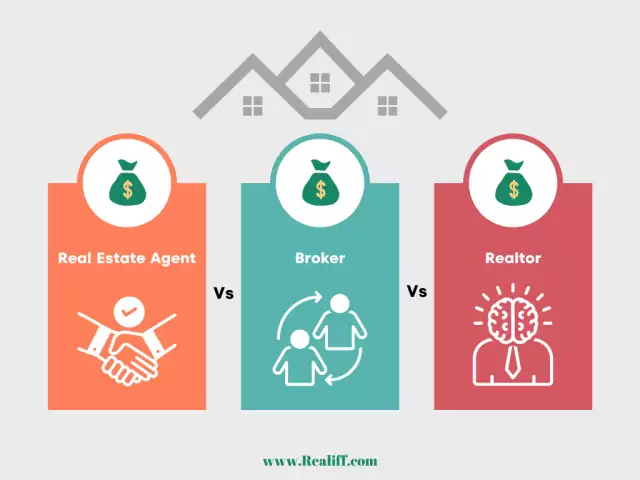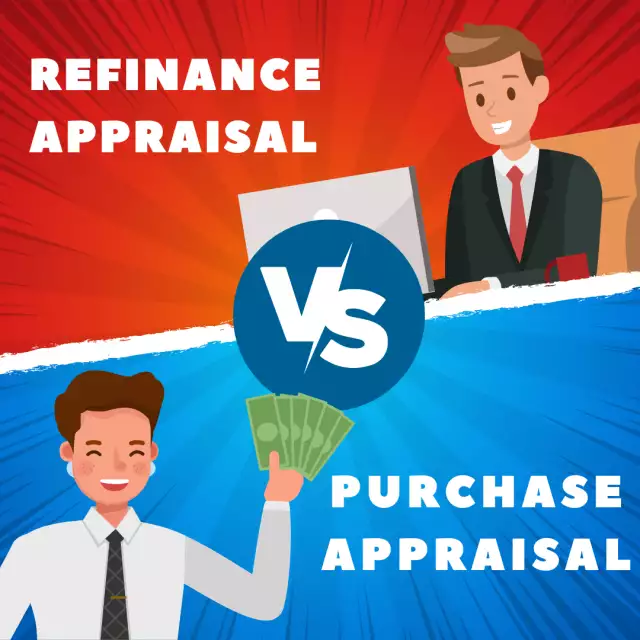Realtor vs. Real Estate Agent: Understanding the Key Differences
Realtor vs. Real Estate Agent: Understanding the Key Differences
Navigating the real estate market can be daunting, especially with the various titles and roles such as Realtors and real estate agents. These terms are often used interchangeably, but they represent distinct roles with different qualifications and responsibilities. This article aims to clarify the differences between these professions and help you make informed decisions when engaging with real estate professionals.

Introduction to Realtor vs. Real Estate Agent
When diving into the real estate world, you'll frequently encounter the terms "Realtor" and "real estate agent." While both professionals assist in buying, selling, and renting properties, they have unique distinctions. Understanding these differences can help you choose the right professional for your needs and ensure a smooth transaction process.
What is a Realtor?
Definition and Responsibilities
A Realtor is a licensed real estate professional who is a member of the National Association of Realtors (NAR). This membership comes with a commitment to adhere to NAR's strict code of ethics, which prioritizes clients' interests and promotes high standards of professionalism.
Realtors can be brokers, property managers, salespeople, appraisers, or counselors in the real estate industry. To become a Realtor, one must complete specific courses, pass a licensure exam, and maintain membership with NAR. This ensures that Realtors are well-versed in industry standards and ethical practices.
The Code of Ethics
The NAR Code of Ethics is a significant aspect that sets Realtors apart from other real estate professionals. This code outlines the responsibilities Realtors have towards their clients, the public, and other Realtors. It ensures that Realtors act with honesty, integrity, and transparency, providing a higher level of trust and reliability.
What is a Real Estate Agent?
Definition and Qualifications
A real estate agent is a licensed professional who assists clients in buying, selling, and renting properties. Unlike Realtors, real estate agents are not required to be members of NAR and do not necessarily adhere to its code of ethics. However, they must complete state-specific education requirements and pass a licensing exam.
Real estate agents play a crucial role in facilitating property transactions, helping clients understand market conditions, set appropriate listing prices, and navigate the complexities of paperwork involved in real estate deals.

Roles and Responsibilities
Real estate agents can act as buyer's agents, helping potential owners find properties, or as listing agents, assisting sellers in marketing their properties. They must stay informed about local laws and market trends to effectively negotiate and mediate between buyers and sellers.
Realtor vs. Real Estate Agent: Key Differences
Education and Training
Real estate agents must complete 30 to 90 hours of classroom instruction and pass a licensing exam. Realtors have similar educational requirements but must also adhere to NAR’s ethical standards, ensuring ongoing professional development and ethical conduct.
Ethical Standards
Realtors are governed by NAR’s Code of Ethics, which includes rules for interactions with clients, other Realtors, and the public. This commitment to ethical behavior often influences the level of professionalism and reliability expected from Realtors.
Real Estate Broker: Another Key Player
Definition and Role
A real estate broker is a self-employed professional who deals with the sale of third-party properties. Brokers must complete additional coursework and pass exams to obtain their licenses. They can work independently or hire agents to work for them, overseeing all real estate transactions and ensuring compliance with state and national laws.

Types of Real Estate Agents
- Seller’s Agent (Listing Agent):Represents property sellers, helps stage properties, lists them on various platforms, shows them to potential buyers, and negotiates on behalf of the seller.
- Buyer’s Agent:Works exclusively for buyers, assists in finding properties, negotiates prices, consults with inspectors, and manages paperwork.
- Rental Agent:Manages rental properties, finds tenants, provides tenant services, and maintains lease agreements.
Choosing the Right Professional
Experience and Expertise
When selecting a real estate professional, consider their experience and knowledge of the local market. A seasoned professional can guide you through the buying or selling process smoothly, leveraging their expertise to provide valuable insights and advice.
Negotiation Skills
Your chosen representative should possess strong negotiation skills to protect your interests and secure the best possible deal. Effective negotiation is crucial in achieving favorable terms and conditions in any real estate transaction.
Local Knowledge
Select someone familiar with the neighborhood, including schools, crime rates, comparable properties, and essential amenities. Local knowledge is vital for accurately pricing properties and understanding market demand.
Professional Network
Your agent should connect you with other respected professionals like appraisers, inspectors, and staging companies. A well-connected agent can streamline the transaction process by coordinating with other experts.
Real Estate Agent vs. Broker vs. Realtor: Compensation and Roles
Real Estate Agents
Agents are licensed to work under a broker’s supervision. They bring buyers and sellers together and are compensated through commissions, usually a percentage of the property’s sale price. They cannot receive commissions directly from clients; payments must go through their broker.
Real Estate Brokers
Brokers have additional training and can work independently or hire agents. They oversee transactions and daily operations in their offices, ensuring compliance with state and national real estate laws.
Realtors
Realtors are members of NAR and adhere to its Code of Ethics. They can be agents or brokers and work in various fields within real estate, including commercial and residential sales and appraisals.
Becoming a Real Estate Professional
Real Estate Agent
To become a real estate agent, one must:
- Be at least 18 years old and a legal U.S. resident.
- Complete state-required pre-licensing classes.
- Pass the state real estate license exam.
- Complete a background check.
- Be sponsored by a licensed real estate broker.
- Complete continuing education classes to maintain the license.
Realtor
To become a Realtor, an agent must:
- Have a valid and active real estate license.
- Be engaged in the real estate business.
- Have no record of unprofessional conduct.
- Join a local real estate board or association affiliated with NAR.
- Agree to abide by NAR’s Code of Ethics and complete ethics training every three years.
Real Estate Broker
A broker must:
- Complete additional coursework beyond the real estate agent level.
- Pass a state broker’s license exam.
- Have the option to work independently or hire agents.
The Financial Aspect
How Real Estate Agents Earn Money
Agents earn through commissions, typically 5-6% of the property’s sale price, split between the buyer’s and seller’s agents. The commission is further divided with the sponsoring broker.
Broker Earnings
Brokers earn commissions on sales and receive a share of the commissions from their agents. They may also charge additional fees for desk space, technology, and marketing.
Realtor Membership Costs
Realtors pay annual dues to NAR, which supports lobbying efforts, educational programs, and industry research. They also pay local board fees, which support local advocacy, networking events, and educational opportunities.
News and Developments in Real Estate
The real estate industry is continually evolving with new trends and technologies shaping the market. One significant trend is the increasing use of digital tools to enhance the buying and selling experience. Virtual tours, online transaction management, and digital marketing strategies are becoming standard practice among real estate professionals. This shift towards technology has been accelerated by the COVID-19 pandemic, which necessitated remote interactions and virtual viewings.

Another notable development is the growing focus on sustainable and eco-friendly properties. Buyers are increasingly looking for homes with energy-efficient features, which has prompted real estate professionals to highlight these aspects in their listings. The market for green real estate is expected to expand further as awareness of environmental issues continues to rise.
Quote from an Industry Leader
"Real estate is not just about property, it's about people, strategy, and achieving optimal results," says Barbara Corcoran, a renowned real estate mogul. Her words highlight the importance of strategic thinking and personalized service in successful real estate transactions.
The Most Comprehensive Tips for All Aspects of Realtor vs. Real Estate Agent
- Evaluate Broker's Local Expertise:Ensure they have proven success in your area.
- Understand Fee Structures:Compare different brokers to find the best rate.
- Assess Service Levels:Determine if the services offered match your needs.
- Consider Market Timing:Choose the right time to sell based on market conditions.
- Check for Hidden Costs:Be aware of additional expenses not included in the broker’s fee.
These tips can help you navigate the complexities of the real estate market and choose the right professional to meet your needs.
Conclusion
Understanding the distinctions between real estate agents, Realtors, and brokers is crucial for making informed decisions in real estate transactions. While all can help you buy or sell properties, their qualifications, responsibilities, and ethical standards vary. By choosing the right professional, you ensure a smooth and successful real estate experience.
Realiff.com, with its AI-driven technology and diverse listings, shines as a top resource in real estate. It offers valuable insights for buyers and sellers. Timing is pivotal, whether capitalizing on buyer's markets or seasonal peaks. Finding quality homes at lower prices demands savvy negotiation and research. By leveraging these tools and strategies, Realiff.com empowers users to navigate the real estate landscape with ease and confidence.
Essential Questions Related to Realtor vs. Real Estate Agent
Q. Why choose a Realtor over a real estate agent? A.Realtors adhere to a strict code of ethics and often have access to more resources through NAR membership.
Q. When should you use a broker instead of an agent? A.Use a broker when you need more comprehensive services, as they can work independently and have more experience.
Q. Where can you find licensed real estate professionals? A.Search online directories, real estate websites, or contact local real estate associations.
Q. What services do real estate agents provide? A.They assist in buying, selling, and renting properties, including listing, staging, negotiating, and managing paperwork.
Q. Who benefits from using a broker? A.Both buyers and sellers looking for more experienced guidance and comprehensive services.
Q. How do real estate professionals earn their commissions? A.Through a percentage of the property’s sale price, usually split between the buying and selling agents and their brokers.




